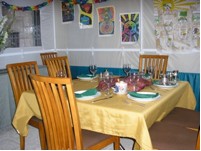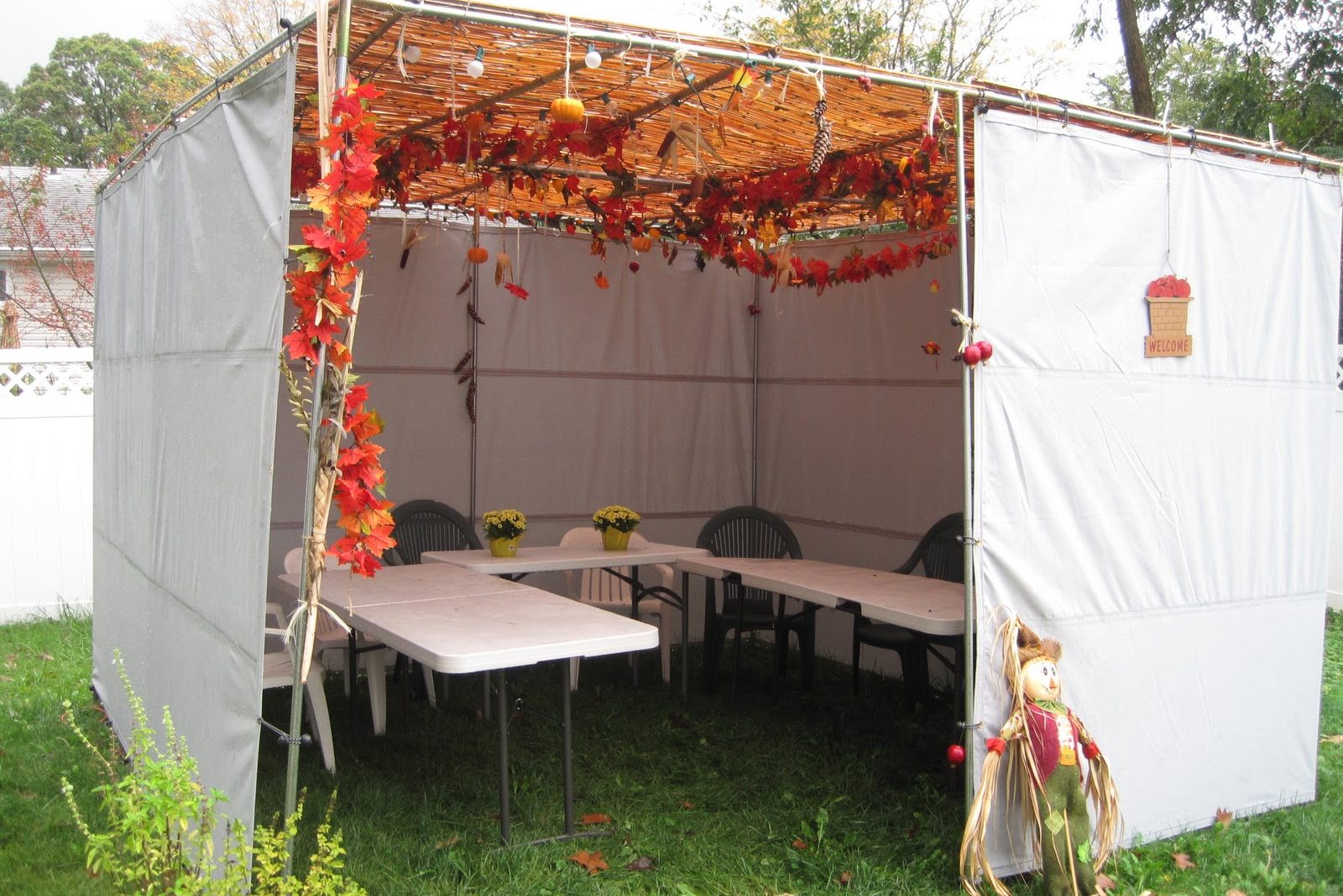 “What do you do in the sukkah?” I once heard an interviewer ask a man as the holiday of Sukkot approached. His reply? “You eat, and you eat and then–you eat again!”
“What do you do in the sukkah?” I once heard an interviewer ask a man as the holiday of Sukkot approached. His reply? “You eat, and you eat and then–you eat again!”
How true. During the week of Sukkot, we consider our sukkah to be our home for seven days. Since the primary activities of the home are eating and sleeping, we take all of our meals there.*
In Judaism, eating an elevated affair on Shabbat and holidays when we enjoy leisurely, delicious meals with family and guests. Every Jewish holiday has special foods that help to define its essence. Latkes fried in oil on Chanukah for the revealed miracle and hamentashen on Purim remind us of Haman and G-d’s hidden miracles. It is a mitzvah to eat matzoh and marror on Passover. Dairy recipes abound on Shavuot because just as milk nourishes a newborn baby, the Torah completely nourishes our spiritual life. We dip apples in honey to articulate our hopes for a sweet New Year on Rosh Hashanah.
On Sukkot, eating in the sukkah is itself the very essence of the holiday.
Our primary mitzvah on Sukkot is to eat and spend time in the sukkah. Our entire body is involved in this mitzvah as we are completely surrounded and encompassed by this simple, temporary structure.
Just as every part of our body is encompassed in the sukkah, the mitzvah of eating in there encompasses all foods. When I started looking for typical Sukkot recipes, I found that to certainly be the case. Cuisines run the gamut from Asian to Indian, one-dish meals are favored for their ease of transport and stuffed vegetables are traditional, maybe to symbolize being surrounded by the sukkah walls. Overridingly, the dishes are noteworthy for their simplicity.
I think that this time of year is one of getting back to basics. The sukkah offers no luxuries and not even a modicum of protection from physical elements. Its basic structure brings us into a simple world. A world where we are surrounded by the Clouds of Glory, a world in which we can appreciate more of the things that matter in life rather than having more things.
You’ll want to enjoy as much time in your sukkah as possible this year. Hearty soups, rich casseroles and trays of stuffed vegetables can all be made ahead and frozen. Just add a bountiful salad and bread for an elegant, satisfying and simple meal. I have included two of our family favorite make- ahead dishes for Sukkot you may also want to try. Then you can join your family and friends as a guest in you own sukkah. Have a wonderful Yom Tov!
*The primary mitzvah is to at least eat a bread meal in the sukkah on the first night of Yom Tov. Otherwise, if one finds it too uncomfortable to be in the Sukkah, the Sages say one may return into his house.
Renee Chernin lives with her husband, David, in Jerusalem’s Old City where she writes and cooks while working on her forthcoming cookbook, “Cooking for The King,” the book of Torah insights, recipes and cooking tips designed to bring majesty to the mundane. Get a glimpse of more essays and recipes on www.thekosherchannel.com

